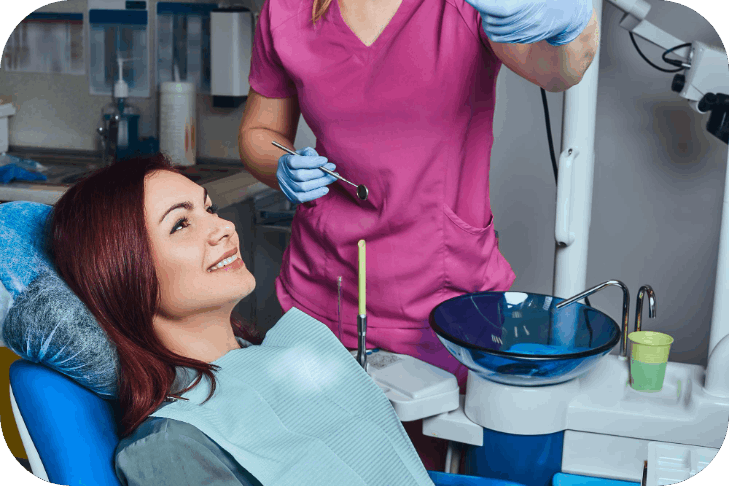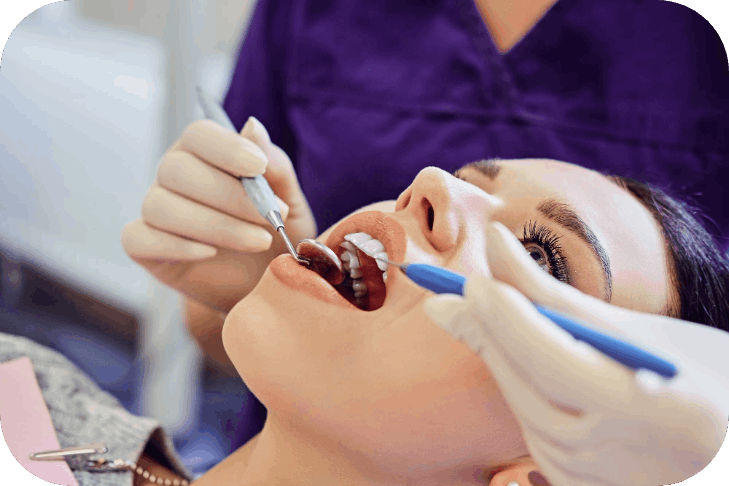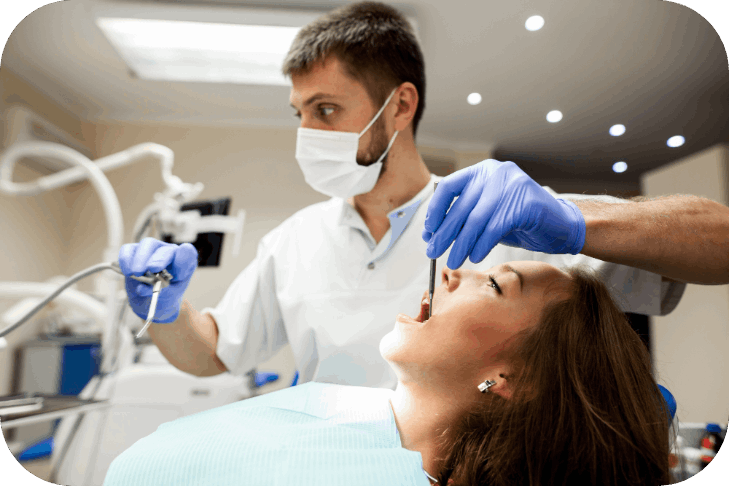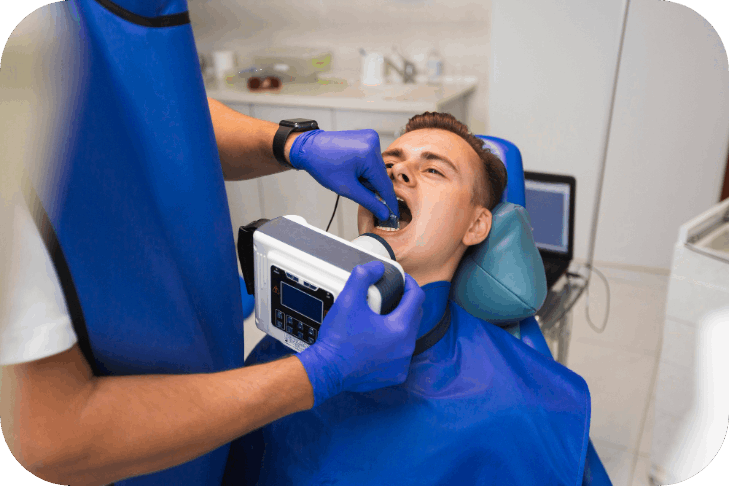Tooth Extraction in Aberdeen
Treatment / Tooth Extraction
Treatments / Tooth Extraction
Tooth Extraction Treatment
Cove Dental and Implant Clinic prioritises patient safety and comfort. Our expert team provides compassionate, personalised attention and precise care, which has earned us trust and respect in the dental field. Don’t delay seeking treatment for pain or discomfort. Visit us today to examine if tooth extraction is needed and prevent future complications.
When is it advised to have a tooth extracted?
Tooth extraction in Aberdeen is suggested in case of severe decay, irreparable damage, gum disease, or overcrowding. Impacted wisdom teeth also require extraction. Dentists examine each situation individually, considering factors such as pain, infection risk, and overall oral health to decide if extraction is the most suitable treatment or not.

Preparation for Tooth Extraction & Recovery Process
Tooth extraction in Aberdeen is a common procedure to eliminate unrestorable teeth and prevent potential infections. The process involves removing the tooth from its root, which is known as “pulling”.
After tooth extraction, a patient may have some minimal discomfort and swelling. Follow post-operative care instructions, such as ice, prescribed medications, and avoiding certain foods for quick recovery.

Types of tooth extraction
Simple Extraction:
Local anaesthesia is used which causes pressure but not pain.
Surgical Removal:
It involves intravenous and local anaesthesia, sometimes with general anaesthesia. Tooth extraction surgeries may involve cuts in severe conditions and removing bone if needed.

Expectations during tooth extraction
Before the procedure, your dental and medical history will be reviewed by the dentist. After that, the dentist will explain the procedure, including potential risks. Topical and local anaesthetics are used, and the tooth is gently extracted. In severe cases, incisions may be made, and the root is cleansed. Stitches may be applied based on the condition.
Risks of tooth extraction
While risks exist, the benefits often outweigh them. Be cautious about dry sockets, a potential issue if the blood clot shifts after tooth extraction. Follow post-op care to prevent it. Dentists may use a sedative dressing to protect the exposed bone, which promotes the formation of a new blood clot for healing. Risks are minimal, and post-extraction care is crucial to prevent complications.


Recovery After Tooth Removal
Most people resume normal activities the same day. However, recovery time varies from person to person, with soreness, numbness, and pain. Hot food and drink items must be avoided, and biting should be done carefully. Pain may increase after three days but usually goes away in 7 to 10 days. Contact our NHS dentist in Aberdeen for any discomfort to ensure proper post-extraction care and treat any infections.
Schedule Your Appointment
Experience pain-free tooth extraction in Aberdeen at Cove Dental and Implant Clinic in Aberdeen. Our skilled team uses specialised tools, a powered peristome technique, and a laser to provide a safer and less painful extraction procedure. Laser technology helps in reducing swelling and makes teeth come out easily and safely. Schedule your appointment for safe tooth extraction now!
Frequently Asked Questions
What is a tooth extraction?
A tooth extraction is the removal of a tooth from its root. It is suggested by doctors in case of severe decay, infection, crowding, or as part of orthodontic treatment.
Is tooth extraction painful?
Tooth extraction is generally done under anaesthesia so that patient may experience minimal pain during the procedure. Some discomfort may occur post-extraction but it is manageable with prescribed pain-relief medications.
How long does a tooth extraction take?
The duration varies according to every patient’s condition. A simple extraction may take 15-20 minutes, while surgical extraction, based on complexity, can take around 1 hour.
Will I be able to eat normally after a tooth extraction?
Initially, a soft diet is suggested by doctors. It is best to avoid hard or chewy foods during the initial recovery period. As healing continues, the patient can start normal eating.
Are there any complications after a tooth extraction?
While uncommon, complications can include dry socket, infection, or nerve damage. Proper following post-extraction care instructions and regular follow-ups minimise these risks.
Will I need a replacement tooth after an extraction?
The need for a replacement tooth depends on the location and function of the extracted tooth. Options like dental implants, bridges, or dentures may be suggested for tooth replacement.
